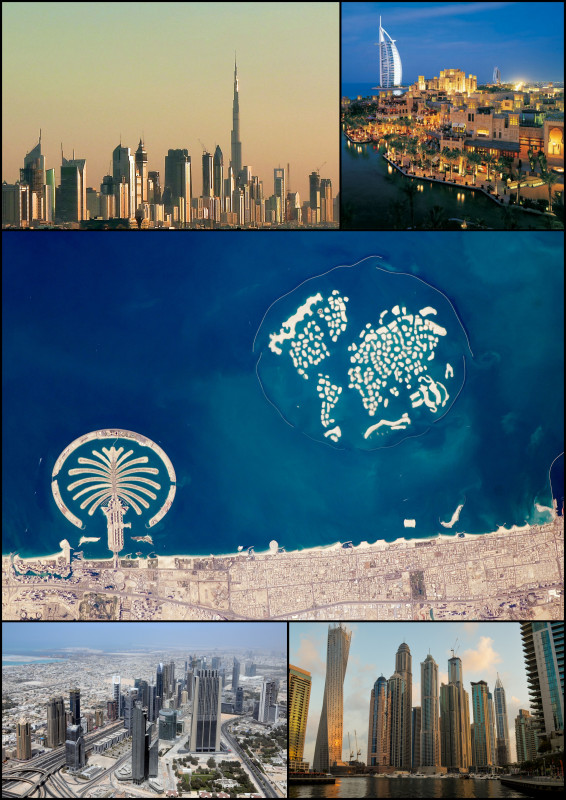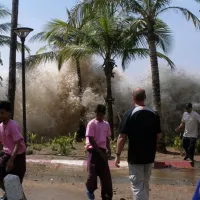Somalia, officially the Federal Republic of Somalia, is located in the Horn of Africa, bordered by Ethiopia, Djibouti, Kenya, the Gulf of Aden, and the Indian Ocean. It boasts the longest coastline on mainland Africa. With an estimated population of 18.1 million, its capital and largest city is Mogadishu, home to 2.7 million people. Approximately 85% of the population are ethnic Somalis. Somali and Arabic are the official languages, with Somali being the primary language. The country has strong historical and religious ties to the Arab world, and the majority of Somalis are Sunni Muslims.
July 1960: Formation of the Somali Republic
On July 1, 1960, the State of Somaliland (formerly British Somaliland) and the Trust Territory of Somaliland united to form the Somali Republic.
July 1961: Ratification of the Constitution
The constitution, drafted in 1960, was ratified through a popular referendum in July 1961 by the people of Somalia under Italian trusteeship. Most people from the former Somaliland Protectorate didn't take part, and a small number of those who did voted against it.
1967: Muhammad Haji Ibrahim Egal becomes Prime Minister
Muhammad Haji Ibrahim Egal was appointed Prime Minister of Somalia in 1967 by President Shermarke.
1969: End of Shermarke's Presidency
Abdirashid Ali Shermarke's presidency ended in 1969.
1969: Founding Member of OIC
Somalia became a founding member of the Organisation of Islamic Cooperation in 1969.
1971: Tree-Planting Campaign
In 1971, the Siad Barre government launched a nationwide tree-planting initiative to combat the encroachment of sand dunes on towns, roads, and farmland.
1974: Somalia Joins Arab League and Chairs OAU
In 1974, Somalia joined the Arab League and Barre chaired the Organisation of African Unity (OAU), highlighting Somalia's focus on Arab world relations.
July 1976: Establishment of the Somali Revolutionary Socialist Party
In July 1976, the Supreme Revolutionary Council (SRC) dissolved itself and established the Somali Revolutionary Socialist Party (SRSP), a one-party government based on scientific socialism and Islamic tenets.
1976: Referendum in Djibouti
A referendum was held in Djibouti in 1976 regarding the territory's future, with the majority of 'no' votes coming from Somalis favoring unification with Somalia.
July 1977: Ogaden War Begins
The Ogaden War began in July 1977, initiated by Somalia's attempt to incorporate the Ogaden region of Ethiopia into a Greater Somalia.
September 1977: Somali Advances in Ogaden War
By September 1977, Somali forces controlled 90% of the Ogaden region, capturing key cities and pressuring Ethiopian supply lines.
1977: Djibouti's Independence
Djibouti gained independence from France in 1977, with Hassan Gouled Aptidon, a supporter of the 'yes' vote in the 1976 referendum, becoming its first president.
1978: Soviet Intervention and Somali Retreat
In 1978, Soviet intervention, including Cuban forces and Soviet experts, aided Ethiopia, leading to the Somali army's retreat from the Ogaden.
1979: New Constitution and People's Assembly Elections
A new constitution was implemented in Somalia in 1979, followed by elections for a People's Assembly. Despite this, the SRSP politburo retained ruling power.
October 1980: SRSP Disbanded, SRC Re-established
In October 1980, the SRSP was disbanded, and the Supreme Revolutionary Council was reinstated, marking a shift in Somalia's political landscape.
1984: Major Uranium Deposits Discovered
In 1984, reports confirmed the presence of substantial uranium deposits in Somalia, estimated to be a significant portion of the world's known reserves.
1986: Wildlife Rescue, Research and Monitoring Centre
Ecoterra International established the Wildlife Rescue, Research and Monitoring Centre in 1986 to raise public awareness of ecological issues.
1988: Tree-Planting Campaign Progress
By 1988, significant progress had been made in the tree-planting campaign, with 265 hectares treated and numerous range reserve and forestry plantation sites established.
1988: Bombing of Hargeisa
In 1988, Barre's government bombed Hargeisa, a Somali National Movement stronghold, as part of a crackdown on resistance movements.
1989: Somalia Proposal and CITES Adherence
In 1989, following educational efforts, the Somali government adhered to the Convention on International Trade in Endangered Species of Wild Fauna and Flora (CITES), marking a significant step in wildlife conservation.
1990: Restrictions and Economic Hardship in Mogadishu
In 1990, Mogadishu faced restrictions on public gatherings, fuel shortages, inflation, and currency devaluation. A black market thrived amid banking shortages, and strict exchange controls were imposed.
1990: GDP Per Capita Reference
The 2012 GDP per capita figure for Somalia was compared to the 1990 figure as a reference point.
May 1991: Somaliland Declares Independence
Following Barre's ouster in 1991, the northern part of Somalia (formerly British Somaliland) declared independence as the Republic of Somaliland in May 1991. Though de facto independent, it lacked international recognition.
1991: Aerial Assault on Beledwene
Barre's regime launched a deadly aerial attack on Beledwene in 1991, demonstrating the government's brutal measures to suppress opposition.
1991: Somaliland's Declaration of Independence
Following Somalia's collapse in 1991, Somaliland declared independence, leading to a cessation of relations with the Somali government.
1991: Start of Civil War and Trade
Following the start of the Somali Civil War in 1991, imports and exports surpassed pre-war levels, with imports exceeding $460 million and exports at $270 million annually.
1991: Civil War Disrupts Central Banking
The 1991 civil war resulted in a disruption of central banking operations and the absence of a central monetary authority for 15 years until the Central Bank of Somalia was established again in 2009.
1991: Disbandment of Somali National Army
The Somali National Army was disbanded in 1991 due to the outbreak of the civil war.
1991: Civil War Impacts Somali Industries
The outbreak of the civil war in 1991 severely impacted Somalia's manufacturing sector, leading to the destruction of many industries.
1994: Estimated GDP
The CIA estimated Somalia's GDP at $3.3 billion in 1994.
1999: End of Aptidon's Presidency
Hassan Gouled Aptidon's presidency in Djibouti ended in 1999 after serving from 1977.
1999: Peace March Against Charcoal Wars
Horn Relief coordinated a peace march in Puntland in 1999 to address the conflict surrounding charcoal production.
2000: Puntland Charcoal Export Ban
Following lobbying efforts, the Puntland government banned charcoal exports in 2000, leading to a significant drop in exports.
2001: Estimated GDP
Somalia's GDP was estimated at $4.1 billion in 2001.
2002: Goldman Environmental Prize
Fatima Jibrell was awarded the Goldman Environmental Prize in 2002 for her work in environmental conservation and combating desertification.
December 2004: Tsunami and Toxic Waste Allegations
Following the December 2004 tsunami, allegations emerged that Somalia's coastline had been used as a toxic waste dump site after the civil war began, and the tsunami's waves may have stirred up this waste.
2004: Coca-Cola Bottling Plant Opens in Mogadishu
A new Coca-Cola bottling plant opened in Mogadishu in 2004, attracting investments from various sources within Somalia.
2004: Reconstitution of the Military
The process of reconstituting the Somali military began in 2004 with the establishment of the Transitional Federal Government (TFG).
2005: Somali Telecommunication Companies Sign Inter-Connectivity Deal
In 2005, several Somali telecommunication companies signed an inter-connectivity deal to regulate prices, maintain networks, and manage competition.
2007: Private Sector Growth
A 2007 British Chambers of Commerce report indicated growth in Somalia's private sector, particularly in the service sector.
2008: National Geographic Society/Buffett Foundation Award
In 2008, Fatima Jibrell received the National Geographic Society/Buffett Foundation Award for Leadership in Conservation.
2008: Puntland Government Signs Multimillion-Dollar Deal with Dubai's Lootah Group
In 2008, the Puntland government secured a significant investment deal with Dubai's Lootah Group for the development of Bosaso's free trade zone and airport facilities.
2009: Estimated GDP and Growth Rate
In 2009, the CIA estimated Somalia's GDP at $5.731 billion with a projected real growth rate of 2.6%.
2009: Central Bank of Somalia Re-established
The Central Bank of Somalia was re-established in 2009, restoring a central monetary authority after its absence from 1991.
November 2010: .so Domain Relaunched
The .so domain for Somalia was officially relaunched in November 2010 by .SO Registry, under the regulation of the Ministry of Posts and Telecommunications.
2010: Local Businesses Supply Electricity
In 2010, local businesses played a significant role in supplying electricity in Somalia, with the country producing 310 million kWh and consuming 288.3 million kWh.
2010: Trans-National Industrial Electricity and Gas Company Launched
The Trans-National Industrial Electricity and Gas Company, a conglomerate of Somali companies, was formed in 2010 with a $1 billion investment to develop energy infrastructure.
April 2011: Somali National Television Re-launched
The Somali National Television, the main public service TV channel, was officially re-launched in April 2011 after a 20-year hiatus.
2011: Uncertainty Surrounding Oil Reserves
In 2011, there was uncertainty surrounding the presence or extent of proven oil reserves in Somalia, with conflicting reports from the CIA and UNCTAD.
August 2012: Provisional Constitution Adoption
The Provisional Constitution of the Federal Republic of Somalia was adopted in August 2012, providing a legal framework for the republic.
2012: GDP Per Capita
Somalia's GDP per capita in 2012 was $226, a slight decrease from 1990.
2012: Ministry of Defence Formation
The Ministry of Defence of the Federal Government of Somalia was formed in mid-2012 to oversee the Somali Armed Forces.
2012: Somalia Stock Exchange Founded
The Somalia Stock Exchange (SSE) was founded in 2012 to attract investments and support the post-conflict reconstruction process.
January 2013: Re-opening of National Intelligence Service
The Somali federal government reopened the national intelligence service in Mogadishu in January 2013, renaming it the National Intelligence and Security Agency (NISA).
November 2013: Somali Postal Service Reconstituted
In November 2013, the Somali Postal Service was officially reconstituted following a Memorandum of Understanding with Emirates Post.
March 2014: Somali Shilling Appreciates Significantly
By March 2014, the Somali shilling had appreciated by almost 60% against the U.S. dollar over the previous 12 months, becoming the strongest performing global currency.
October 2014: International Postal Delivery Relaunched
The Ministry of Posts and Telecommunications relaunched international postal delivery in October 2014.
October 3, 2020: UN Human Rights Concerns
On October 3, 2020, a UN human rights investigator expressed concerns about the Somali government's backtracking on human rights commitments.
2023: V-Dem Democracy Ranking
In 2023, Somalia was ranked the 5th least democratic country in Africa according to V-Dem Democracy indices.
Mentioned in this timeline

Coca-Cola is a globally recognized cola soft drink produced by...
Africa is the second-largest and second-most populous continent comprising of...

Inflation in economics signifies an increase in the average price...

Dubai is the most populous city in the United Arab...
France officially the French Republic is primarily located in Western...

A tsunami is a series of powerful waves caused by...
Trending

51 minutes ago Elina Svitolina defeats Coco Gauff, faces Jessica Pegula in Dubai final.

51 minutes ago Dusty May on Naismith Watch List: Coach of the Year Potential?
51 minutes ago James Milner Breaks Premier League Appearance Record: Klopp Praises His Impact

2 hours ago Team Homan’s Olympic Curling Journey: Semifinal Setbacks and Future Games

3 hours ago Dorothea Wierer at Olympia 2026: Focus on Biathlon Massenstart and Preuß's Last Race.
3 hours ago Juventus vs Como: Preview, Predictions, and Spalletti's Demand for Serie A Reaction
Popular

Jesse Jackson is an American civil rights activist politician and...
Randall Adam Fine is an American politician a Republican who...

Ken Paxton is an American politician and lawyer serving as...

Barack Obama the th U S President - was the...

Bernie Sanders is a prominent American politician currently serving as...
WWE Raw a professional wrestling television program by WWE airs...